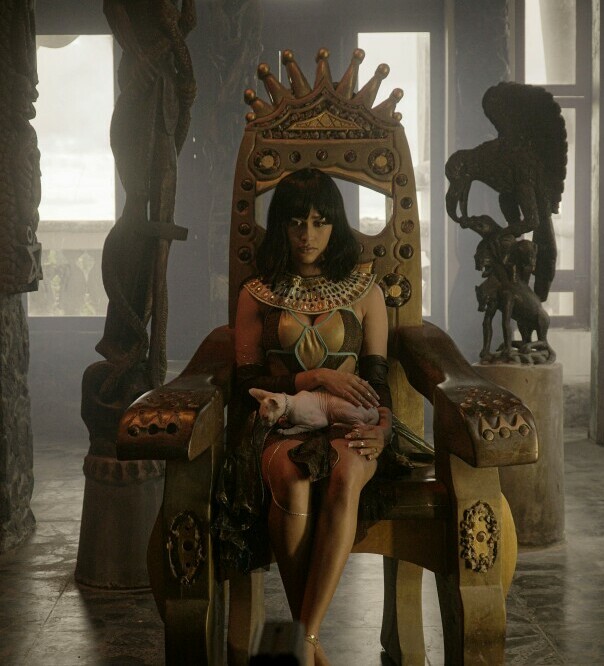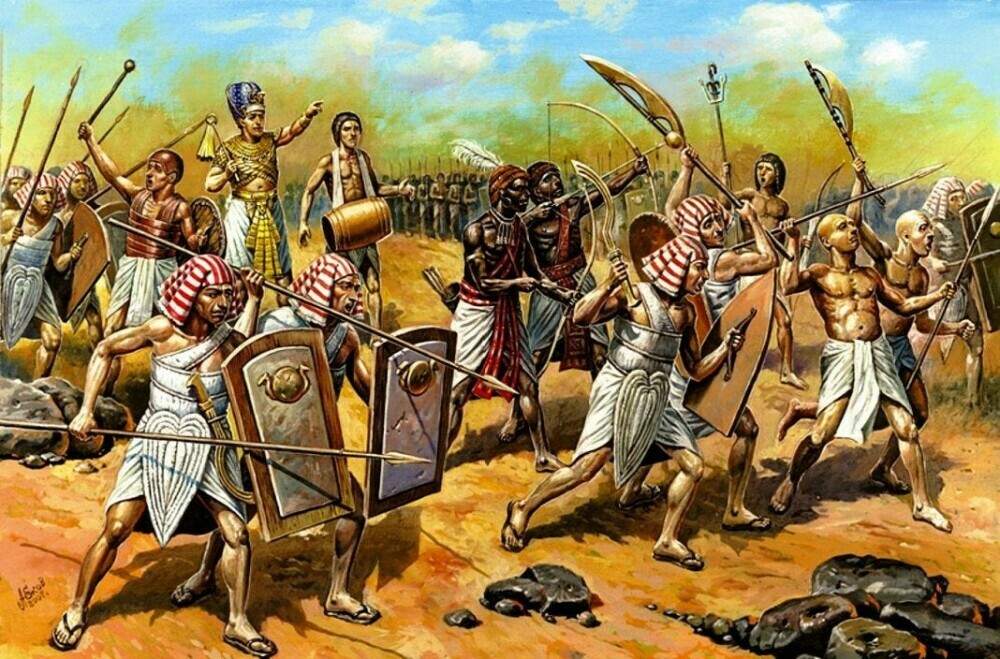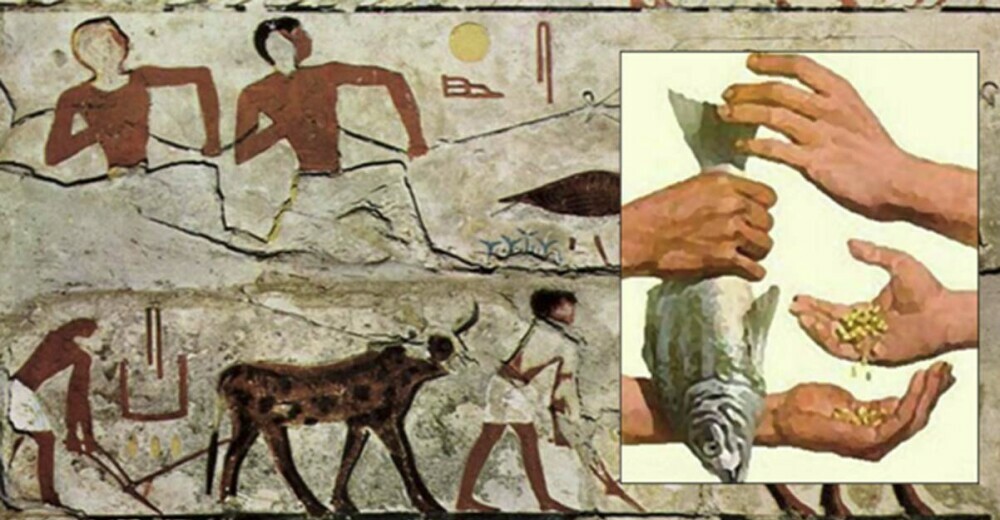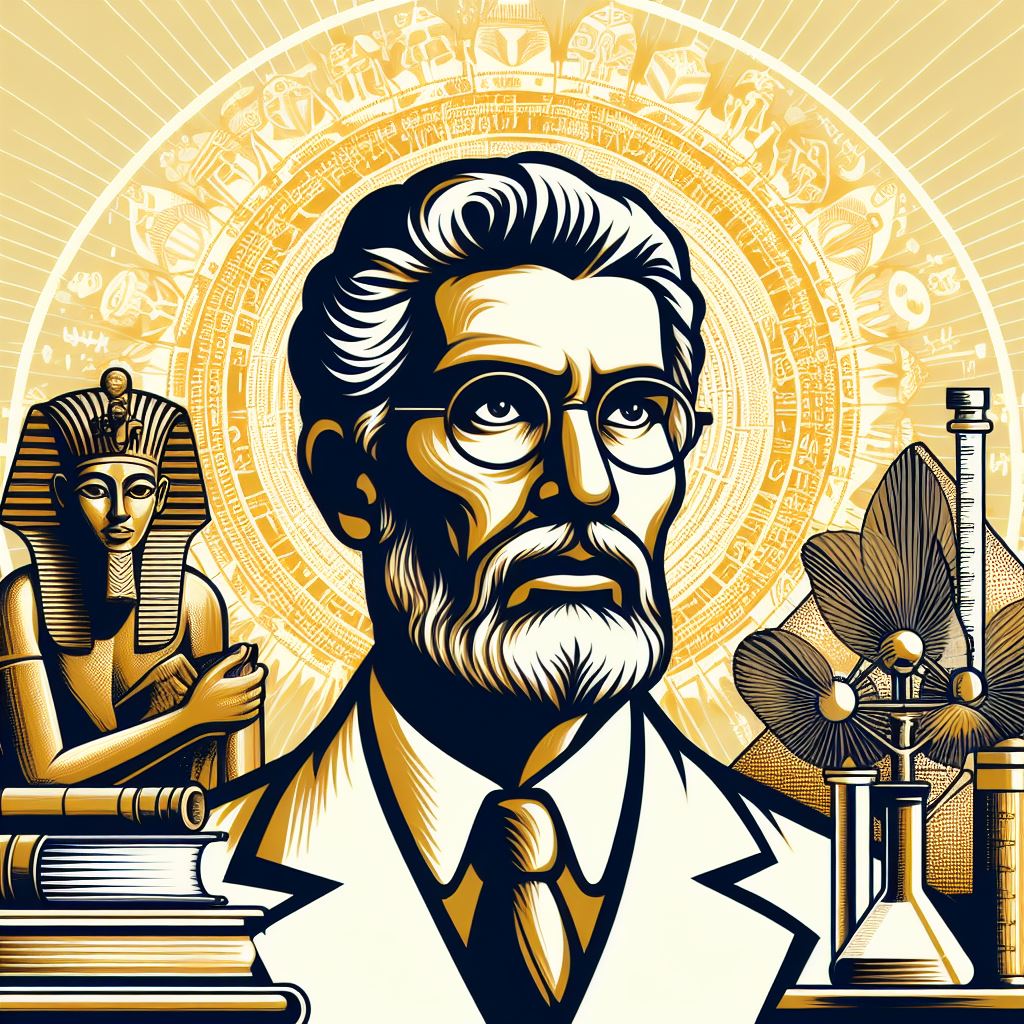In ancient Egypt, the pharaoh wasn’t just a mortal sovereign. They were revered as a godly entity, an earthly manifestation of deities like Horus or Ra. This belief was foundational, weaving the pharaohs’ religious import into the very fabric of Egyptian culture.
Imagine every decision, every decree a pharaoh made, being weighted with divine expectation. Their words carried the will of the gods, promising blessings for obedience, and peril for defiance. pharaohs didn’t just rule; they connected their subjects to a higher plane, orchestrating a balance between the heavens and the earth.
Egyptians placed their trust in this divine kingship. It was more than faith; it was an understanding that pharaohs, through their divine link, would ensure the flow of the Nile, the bountiful harvests, and the very order of the cosmos. The significance of such leadership cannot be understated; it sustained the civilization and its world view.
As divine leaders, pharaohs faced immense responsibility. It wasn’t just their kingdom they oversaw, but the stability of the universe itself. This grand duty informed every aspect of their reign, ensuring they remained ever mindful of their role in maintaining divine harmony. Yet, with divine rule came absolute power, branching into every realm of governance.
Masters of Governance: Pharaohs’ political dominance

The pharaohs of ancient Egypt were not just ceremonial figureheads. They wielded ABSOLUTE political power, shaping the very foundation of one of history’s most enduring civilizations. Their word was law, possessing the ultimate authority over the land and its people.
At the crux of their political rule were three core responsibilities: lawmaking, tax collection, and justice administration. Pharaohs enacted decrees that touched every aspect of daily life. From delineating property boundaries to prescribing religious conduct, they LEFT NOTHING TO CHANCE in their efforts to govern an orderly and unified kingdom.
Their ability to collect taxes efficiently was essential to Egypt’s prosperity. Taxes were paid not in money but in goods and labor, a system that required meticulous administration. The wealth collected filled the state’s granaries and treasuries, enabling Egypt to withstand famines and fund monumental architectural projects.
When it came to justice, the pharaohs personified fairness and were considered the ‘Chief Judge.’ Their judgments ensured social order and reflected the overarching principle of MA’AT – truth, balance, and justice, which was the bedrock of Egyptian moral and social ideals.
The administration under the pharaoh was a well-oiled machine, with high officials, often members of the royal family or close confidants, overseeing various departments. These included the vizier, who acted much like a prime minister, managing the day-to-day affairs of state administration and bureaucracy.
This highly centralized government, intertwined with religious authority, ensured that the pharaoh remained the pivot around which all power revolved. However, sustaining this intricate system required a capable military, which is where the pharaoh’s role as a strategic defender and military leader came into play. This duality of roles is a perfect segue into the pharaoh’s responsibilities as the overseer of Egypt’s military might.
Guardians of the Realm: Military might and strategy

As supreme commanders, pharaohs had the crucial responsibility of leading Egypt’s military forces. This wasn’t just about commanding the troops; the pharaoh’s touch in military matters extended to shaping strategies that would defend the nation’s borders from foreign enemies and smother internal upheavals. Their prowess in these campaigns wasn’t merely a matter of territorial expansion but also a powerful tool to affirm their strength and divine right to rule.
Their leadership in the battlefield was equally symbolic and strategic. When pharaohs rode into battle, they did so as warriors sanctioned by the gods, their victories boosting their divine status among the people and the nobility. These triumphs, often immortalized in temple carvings and inscriptions, served to bolster the pharaoh’s stature as a successful ruler, invincible and favored by the divine.
In the grand scheme, the military’s expansionary successes brought vast resources into the kingdom, including captives who could be integrated into Egypt’s workforce. Trade routes were secured, and rich lands were annexed, ensuring a steady supply of goods vital for the kingdom’s prosperity. Building such a formidable military legacy left an indelible mark on the map and played a crucial role in the longevity of the ancient Egyptian civilization.
Shapers of Economy: Resource management and prosperity

The economic influence of the pharaohs in ancient Egypt was comprehensive. They stood at the apex of an economic pyramid, wielding the power to determine the distribution and utilization of the kingdom’s abundant resources. The efficiency with which they managed these resources was critical for the prosperity and stability of their reign.
The Pharaoh’s pervasive economic role encompassed overseeing agricultural productivity, which was the backbone of Egypt’s economy. With the annual flooding of the Nile delivering fertile silt to the fields, pharaohs had to ensure that irrigation systems were effectively maintained and land allocations were equitably managed to maximize crop yields. Furthermore, granaries were meticulously monitored under their command, as they served as reservoirs for surplus grain to be used in times of famine, effectively maintaining societal balance.
Beyond the fertile banks of the Nile, pharaohs were also charged with facilitating trade. This involved not only domestic barter systems but also international exchanges that brought in luxury goods like gold, ivory, and incense. Trade expeditions, such as those to the legendary land of Punt, were often state-sponsored endeavors that fortified Egypt’s wealth and diplomatic stature.
Grand construction projects were another crucial aspect of the pharaoh’s economic stewardship. The role as a patron of monumental architecture was inseparable from their status. Initiatives like the building of colossal temples, the erecting of obelisks, and not least, the construction of the pyramids – served multiple purposes. These structures acted as centers of worship, stimulated the economy by providing work for laborers and artisans, and manifested the pharaoh’s divine and temporal authority.
As the narrative flows into the next section, it’s important to recognize how the pharaohs’ role as economic stewards and cultural patrons had a synergistic effect. The resources they controlled and allocated not only sustained and enriched Egyptian society but also enabled the flourishing of a civilization revered for its cultural advances. These enduring legacies, manifested through art and architecture, create a seamless transition into the exploration of the Pharaohs’ cultural patronage – the next chapter in understanding their multifaceted role in ancient Egypt.
Patrons of Civilization: Cultural and religious initiatives
In ancient Egypt, pharaohs didn’t just rule; they were seen as the stewards of their culture. Their touch extended well beyond politics and into the very heart of daily life and spiritual existence. As the central patrons of art and architecture, pharaohs commissioned works not just for grandeur but to reflect and sustain the cultural and religious ethos of their time.
Their crowning achievements are still celebrated today: the monumental structures like pyramids, temples, and tombs. These weren’t simply vanity projects; they were dedicated to honoring the gods and to ensure the pharaoh’s own immortality through these stone chronicles. Each commissioned piece was a testament to their commitment to deities and their own legacy.
Pharaohs’ investment in the artistic realm was comprehensive. They funded the meticulous craft of sculptors, the detailed work of jewelers, and the expressive creations of painters. This patronage filtered down to every layer of Egyptian society, creating a vibrant tapestry of the arts that we continue to marvel at thousands of years later.
In parallel, pharaohs bore the responsibility as the ultimate guardians of the religious order. They supported the priesthood, ensuring that they had the resources needed to perform religious ceremonies. These rituals were not mere formalities; they were essential to appease the gods, maintaining favor and balance in the kingdom.
Their role as cultural custodians seamlessly intersected with their religious duties. The pharaohs were often seen as the high priests of all temples, participating in key religious events, which only underscored their multi-layered roles. This blending of the secular and the sacred reinforced their authority and the coherence of their civilization.
Custodians of Cosmic Order: Upholding Ma’at
In ancient Egypt, the concept of Ma’at extended far beyond a mere philosophical construct. It was a tangible force that permeated every aspect of life, and the pharaoh, as the steward of this divine principle, played a pivotal role in maintaining the balance of the universe. Upholding Ma’at involved more than administrative duties; it was about sustaining the moral fiber of the kingdom, ensuring that truth, justice, and harmony prevailed.
The pharaohs’ commitment to Ma’at dictated their actions across all spheres. From fair governance to equitable distribution of food during famines, the pharaoh was expected to be a living embodiment of integrity. They endeavored to keep their subjects content and province stable, which was seen not just as political success, but as a reflection of cosmic order.
Chaos, known as Isfet, was the antithesis of Ma’at, and the pharaohs’ ultimate battle was against this disruption of order. Failure to uphold Ma’at didn’t just risk anarchy among the people, but it was perceived as a breach of the universal balance, one that could invite the gods’ wrath and potentially lead to the kingdom’s downfall.
Thus, the legacy of the pharaohs is deeply interwoven with their ability to embody and foster Ma’at. It was their sacred duty, one that immortalized their rule and enshrined their deeds in the annals of history. This solemn responsibility reminds us that the Pharaohs of ancient Egypt were more than just rulers; they were the linchpins of a civilization that believed deeply in the sustenance of order and righteousness.

